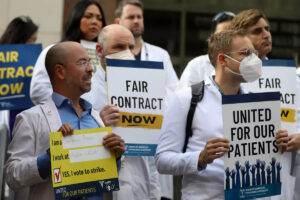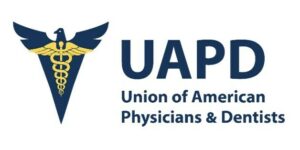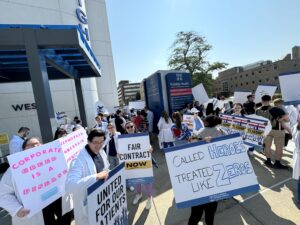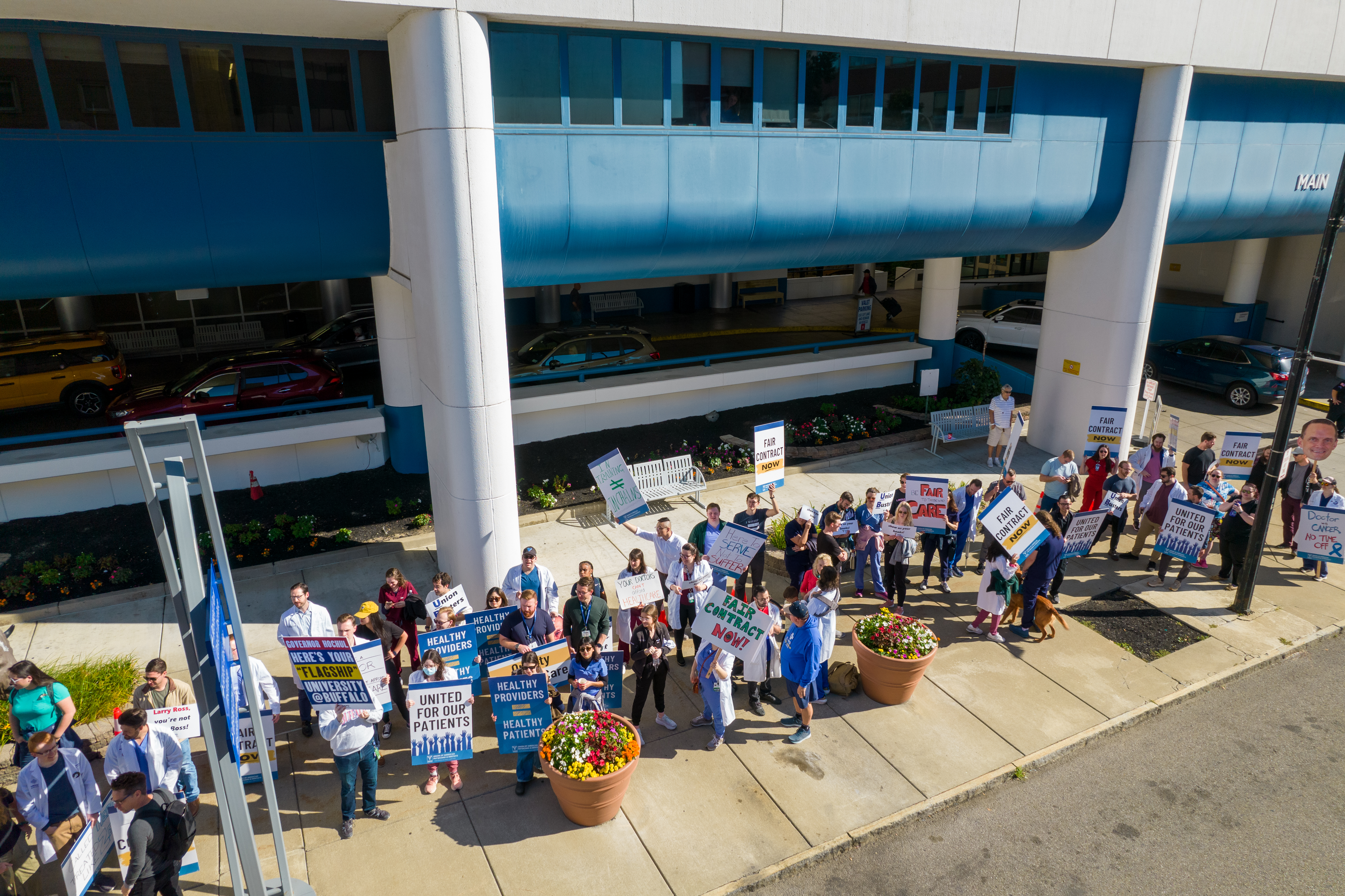Unilaterally (illegally) degraded our healthcare insurance benefits while using “bait-and-switch” tactics to lure residents and fellows to enroll in the UB program.
UBGME/UMRS continued to falsely advertise on their website and during interviews that they offer “free, platinum-level” insurance, despite only offering reduced plans to new residents and fellows for the last 2 years. UBGME continued to falsely advertise “free-platinum” insurance on their website up until July 1, 2024.
Provided the LOWEST resident salary in the region for years.
Sadly, despite being called a “flagship university” by Governor Hochul, salaries for residents and fellows have been the lowest in the region for years. And despite collective bargaining with UMRS for almost 1 year, UB/UMRS and the hospitals continue to keep us at the bottom percentiles for the region in their counteroffers.
Are residents in Rochester, Upstate, Downstate, and Pennsylvania worth more than residents and fellows in Buffalo? CME reimbursements for residents and fellows continue to increase and hospitals unjudiciously bill patients for services performed by resident, yet do we receive any benefit? If you’re asking where all of this money is going, why don’t we look at the healthcare executive bonuses last year?
Engaged in a systematic and individual lack of respect towards UB residents and fellows.
UB, UBGME, UMRS, and affiliated hospitals refuse to respect the hard work of residents. As of their most recent bargaining update, our employer(s) desire to eliminate any appeal by residents and fellows whose training was extended for less than thirty (30) days. That means program directors are free to extend training for residents and fellows less than 30 days, without allowing residents and fellows to appeal this extension.
We believe that if any resident or fellow is threatened with any length of training extension, 1 day or greater, they have the right to appeal the decision with the help of our union.
In addition, our employer has refused to provide us with lawful meal breaks, hazard pay for emergency circumstances, and eliminate our right to strike. Our employer(s) continue to engage in unfair labor practices, such as not bargaining in good faith, unilaterally reducing healthcare benefits (twice), refusing to provide meal breaks to residents, violating NYS FMLA laws, and discriminating against and bullying bargaining unit members based on Union membership (in violation of Sections 8(a)(1) and (a)(3) of the National Labor Relations Act).




